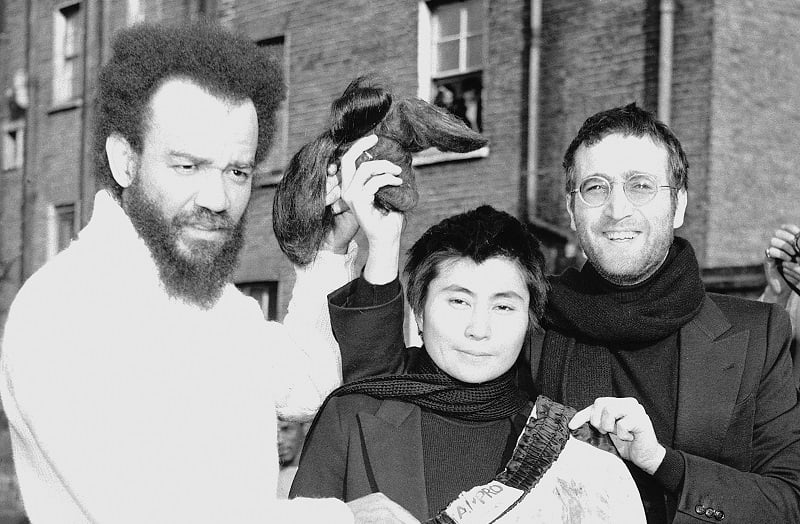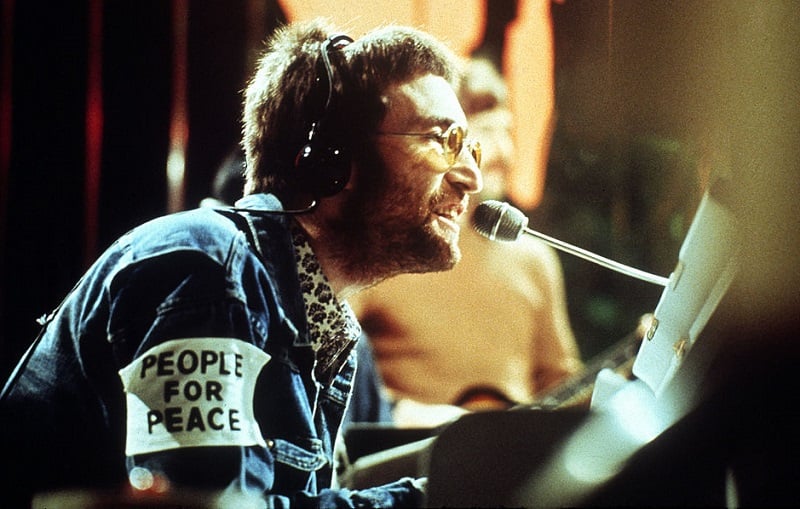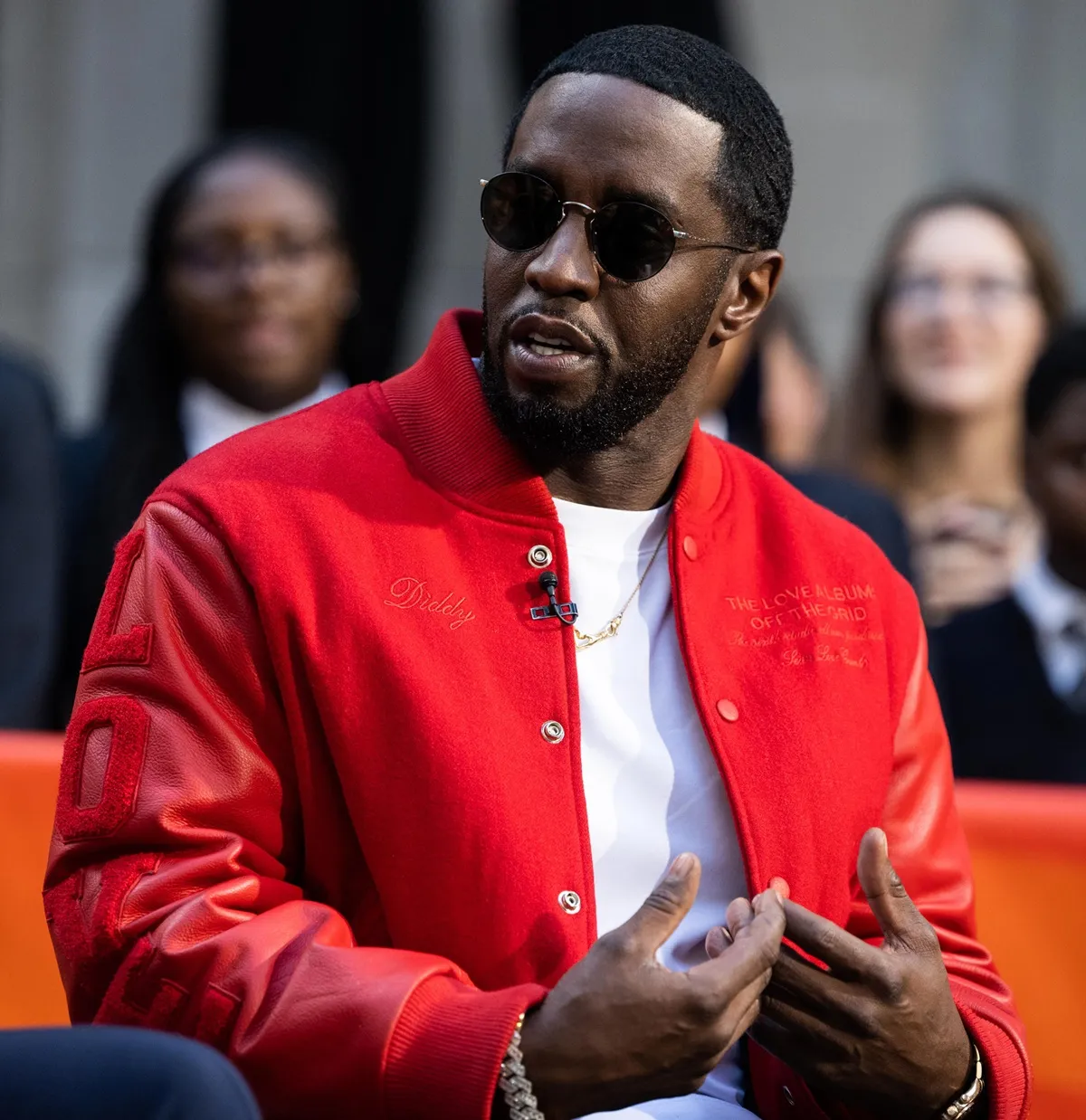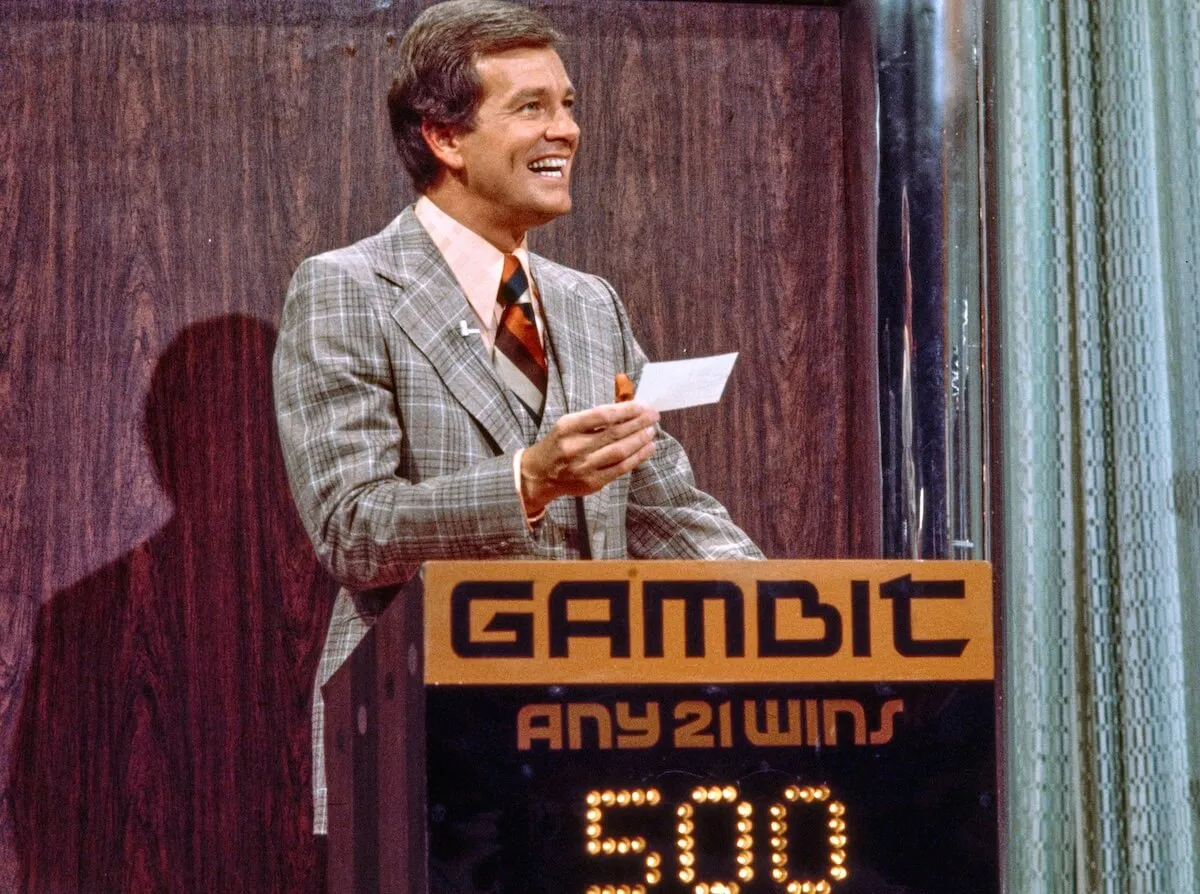Why John Lennon Used the N-Word in a Song He Wrote With Yoko
For most of the Beatles years, the Fab Four didn’t comment on politics or religion. Beatles manager Brian Epstein recommended sticking to the music, and the strategy mostly worked. (The “bigger than Jesus” moment reinforced that.) After Epstein’s death in 1967, things started to change.
John Lennon wanted to make a statement on politics in whatever form during the White Album sessions, and he did so with “Revolution.” The following year, energized by his relationship with Yoko Ono, John kept going with the anti-war anthem, “Give Peace a Chance.”
After the Beatles breakup, John continued in this direction, penning the protest song “John Sinclair” in ’71. Though initially emboldened by the song’s success (Sinclair got out of jail soon after), the effort got John and Yoko on the FBI’s radar.
They weren’t finished, though. During the same period, John also began work on a song (co-written with Yoko) titled “Woman Is the N—er of the World.” That track, released as a single in April ’72, became as controversial as you’d expect.
Lennon was quoting a line by Yoko about oppression of women

In a 1969 interview with Nova magazine, Yoko used the expression “Woman is the n—er of the world” to get across her feelings about misogyny. The boldness of the phrase clearly struck a chord with John, who decided to write a song with the same title.
After working it out with Yoko, John ran it by prominent African-Americans to ask their opinion about how he used the n-word in the track. Apparently, he felt confident enough to run with it, as he and Yoko released the single in April ’72.
In the lyrics, you hear John and Yoko using the n-word to represent anyone who is oppressed. “We insult her everyday on TV … When she’s young we kill her will to be free,” he sang on the single. “While telling her not to be so smart, we put her down for being so dumb.”
While John and Yoko’s intentions were pure, that didn’t mean everyone liked the song. Most radio stations wouldn’t play it and, when the songwriters visited The Dick Cavett Show to play a live version in May, the network had Cavett read a pre-apology to the audience.
John and Yoko got support from Dick Gregory and Rep. Ronald Dellums

During the promotion of the single, ads included a quote from Rep. Ronald Dellums, a Congressman from California who’d founded the Congressional Black Caucus the prior year. “…[Y]ou don’t have to be Black to be a n—er in this society,” it read in part.
After seeing the ad, Dellums wrote to a magazine with his full statement on the subject attached. (Dellums pointed out he never said he “agreed with John and Yoko.”) By that point, comedian Dick Gregory (of SNL fame) had gotten on John and Yoko’s side. In October, the three graced the cover of Jet Magazine.
The cover story, “Ex-Beatle Tells How Black Stars Changed His Life,” clearly had the intention of quieting the controversy the couple had created with the song. Without radio airplay, the song didn’t make much of a dent, sales-wise. However, it still cracked the top 60 on the Billboard charts.
Also see: Why John Lennon Gave Paul McCartney Writing Credit on ‘Give Peace a Chance’


